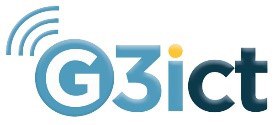A DARE Index Perspective on India’s Progress Towards Implementing Digital Accessibility
Posted on February 01, 2019

Senior Fellow and Program Director Asia-Pacific, G3ict
India was one of the first countries to ratify the Convention on the Rights of Persons with Disabilities (UNCRPD). However, eleven years on, there is still much to be done on the ground in terms of awareness and implementation of Accessibility. G3ict’s Digital Accessibility Rights Evaluation (DARE) Index framework measures countries’ commitments, capacity to implement and actual implementation and outcomes when it comes to Digital Accessibility.
According to the DARE Index, when it comes to accessibility implementation and outcomes, India is ranked 46th in the world and 9th amongst lower middle income countries behind Egypt, Kenya, Angola and Philippines who have the highest rated outcomes in this peer group . When looking at countries in the Asia-Pacific (APAC) region too, India ranks around 8th overall and has policies/measures in progress for around 50% or more of the areas measured in the DARE index. The DARE Index leaders in APAC include Australia, the Russian Federation, Philippines and Malaysia.
Looking at the APAC region as a whole, many countries, including India, have achieved the most progress on the policy front having a constitution law defining the rights of persons with disabilities, a definition of reasonable accommodation, a government organisation dedicated to persons with disabilities as well as one for ICT. However, India lags in the involvement of DPOs in policy making, putting in place a definition of USO in Telecommunications that includes Persons with Disabilities and the availability of ICT accessibility courses across universities in the country.
When looking at the policy areas and outcomes achieved across the economic peer group of lower middle income countries, areas where India has made some progress (DARE Index score 2/5) include accessible websites, e-books and digital documents, inclusive ICTs in Education, eGovernment, smart cities for all and ICTs for independent living. In these areas, the leaders in the economic peer group have made slightly more progress (DARE Index score 3/5). India has made considerably less progress in the area of Accessible TV and video programming with a DARE Index score of 1/5 compared to countries like Kenya, Angola and Ukraine which are leaders in this group with a score of 3/5. However, the areas in which India has made negligible progress (DARE Index score of 0/5) are mobile telephony, internet for persons with disabilities, Inclusive ICTs for employment and workplace) and Procurement of public goods and services. It is hoped that with the legal mandate by the Rights of Persons with Disabilities Act 2016, India’s efforts towards enacting and adopting appropriate policies and standards for these domains see fruition sooner, rather than later. With more attention directed towards mechanisms to aid implementation of these policies and standards in a resource appropriate environment such as India’s, DARE Index scores can see considerable improvement in the future.




























